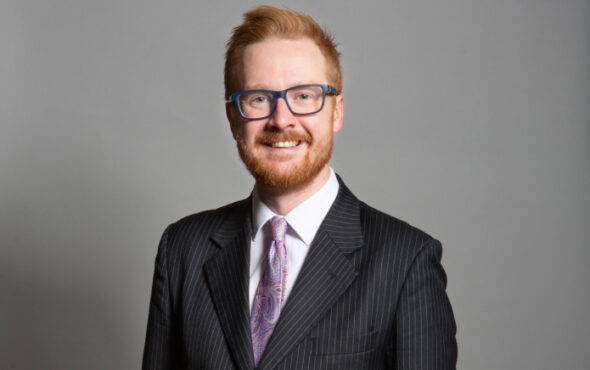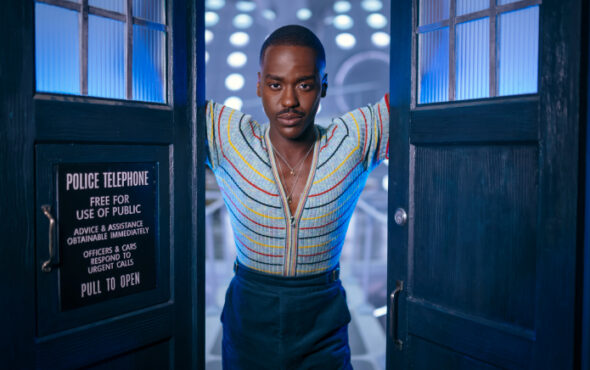
Lloyd Russell-Moyle is hopeful that his bill to ban so-called ‘conversion therapy’ will “unify” people on all sides of the issue.
Speaking to GAY TIMES ahead of the Conversion Practices (Prohibition) Bill’s second reading, which is due to take place on 1 March, the Labour MP explained that he opted to bring the issue forward in the form of a Private Members’ Bill to help bring lawmakers together on an issue the government has “struggled” with.
“All the major parties had promised at the last election that they were going to do this,” he explained.
“When I looked into it, what had happened is everyone had kept getting bogged down too much in trying to define new terms and going down the rabbit holes of engaging in the trans ‘debate’, or the LGBT ‘debate’.
“And what I wanted to do is say, ‘Actually, can we step back here and find something that is almost of a common cause?’ and I know there’s a lot of bad blood, but actually because I’m part of that bad blood, am I able to actually then bring people along with me and surprise people with getting something that can work for all?”
Drafted by Russell-Moyle, the bill has the support of Conservatives such as Caroline Nokes, Chair of the Women and Equalities Committee, and Alicia Kearns, Chair of the Foreign Affairs Committee, both of whom have been clear about their desire to see ‘conversion therapy’ outlawed.
READ MORE: Christian Wakeford MP says ‘conversion therapy’ needs ‘stamping out across society’
It will seek to restrict “practices whose predetermined purpose is to change a person’s sexual orientation or to change a person to or from being transgender,” the latter of which has been the source of intense scrutiny from campaigners on either end of the ‘conversion therapy’ debate.
“Effectively, both sides are actually complaining about the same thing,” explained Russell-Moyle.
“They are complaining that some people are coming in with a premeditated outcome, trying to either stop you being trans or force you being trans.
“What outcome would solve both of their problems? A ban on people having a premeditated outcome of how someone should be. Well, they’re asking for the same thing, but they so distrust each other that we can’t get to a stage where we can all see that that’s what we want.”
Next Friday the Commons will get to vote on a ban of Conversion Practices. I've spoken to 100s of people from all views to get a fair & balanced bill that protects people.
Ask your MP to turn up on 1 March to support.
Read my bill and explanatory notes: https://t.co/MsXJOgoBYe
— Lloyd Russell-Moyle MP🌹🏳️🌈 (@lloyd_rm) February 23, 2024
“There is a way that we can come forward to solve this problem”
To help reach a consensus and ultimately get the bill through Parliament, Russell-Moyle said he listened to “anyone” with relevant advice on it.
“I have met with it from all sides, from the Christian Institute to Stonewall, and I’ve listened to them and I believe, generally, there is a way that we can come forward to solve this problem,” he said.
Russell-Moyle shared that he is hoping the law helps set a “social norm” that ‘conversion therapy’ is “unacceptable,” with his bill also outlawing the advertisement of such practices.
“You’re not able to advertise illegal activities in this country and if we’re saying these things are harmful and would be breaking the law, then why are we even allowing them to be offered?” he explained.
“We wouldn’t if that was drugs, for example, we wouldn’t if that was other things that are harmful.
“So what we’re saying is actually, this law is to focus on the premeditation and the advertising, the organising of those processes, and it will target it there, which makes it easier to stop than the harm happening in the first place, which is the aim of these things.”
“Once you get it over the line, a lot of these concerns will wash away”
Debate around the Conversion Practices (Prohibition) Bill, according to Russell-Moyle, is similar to what took place when same-sex marriage was being considered.
“The craft of being a politician is to say not just what is legally good, but what is good to try and get the maximum number of people to make those compromises,” he continued.
“Let’s get this over the line, because I also genuinely think once you get it over the line, a lot of these concerns will wash away, just like the concerns about gay marriage.
“Everyone said, ‘Well, does that matter?’ and because we were able to show that it wasn’t actually a big issue and it was the right thing to do, I think it’s the same. It will be the same with this.
“I genuinely believe that and if I didn’t have a stab at doing it, I would be a coward.”



